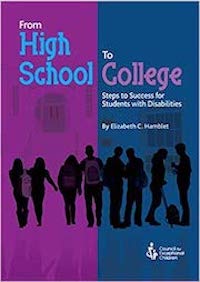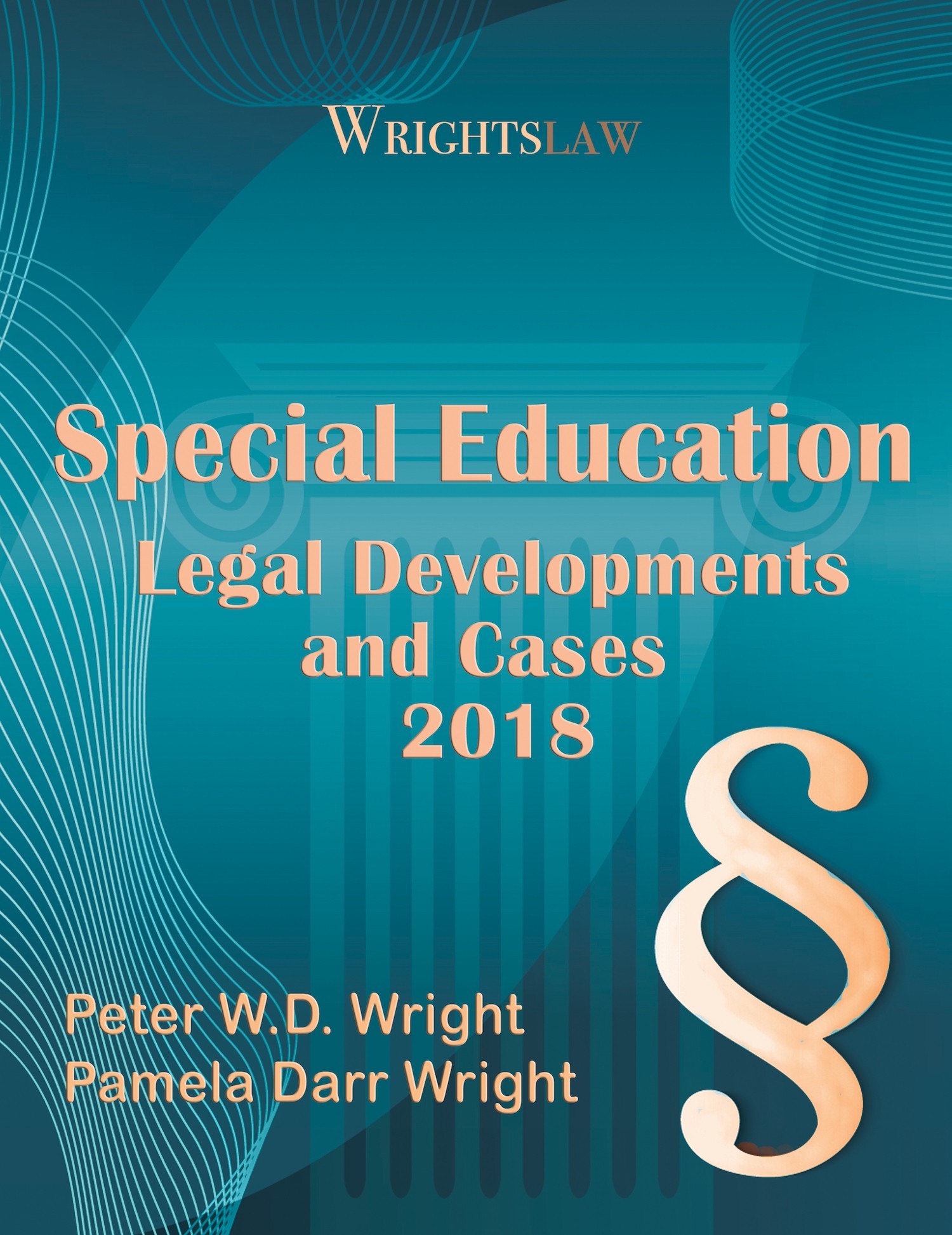In This Issue ...
Legal Requirements for Transition Plans, Goals, Services, Timelines
Why You Need to Begin Transition Planning Early
Finding a Direction: Measuring Interests and Aptitudes
From High School to College: Steps to Success for Students with Disabilities
Do Colleges Have to Follow IEPs or 504 Plans?
ISSN: 1538-320
February 19, 2020

April 2: Nashua, NH
April 19: Denver, CO
April 23: Park City, UT
2020 Full Schedule
|
As a parent, you need to begin thinking about your child's transition to adulthood before they begin kindergarten.
 Although schools exist primarily to provide academic instruction, schools must also address the transition needs of children with disabilities.
Although schools exist primarily to provide academic instruction, schools must also address the transition needs of children with disabilities.
Exactly what does "transition" mean?
"Transition is based upon the individual child's needs, taking into account the child's strengths, preferences, and interests; and includes instruction, related services, community experiences ... [and]employment" (IDEA - 20 USC 1401(34)).
This is the second in a series of newsletters about transition.
Get the first issue here.
In today's issue, we answer your questions about transition plans, assessment, goals and timelines; explain why you need to begin planning for transition earlier; how interest inventories and assessments to gain a sense of direction; and the role of IEPs and 504 plans in college.
If you missed the announcement about a terrific new book about transition, From High School to College: Steps to Success for Students with Disabilities by Elizabeth Hamblet in the Wrightslaw Store, we repeat our praise for this book. Take a look!
Thank you for supporting Wrightslaw and The Special Ed Advocate newsletter. When we launched in 1998, we couldn't imagine how many people we would meet whose lives would touch ours . . . or that we would be publishing to a new generation of parents.
|
|
|

|
|
Legal Requirements for Transition Plans, Goals, Services and Timelines
My son needs to be prepared to get a job when he leaves school. When I asked his IEP team for help, they said, "We don’t do vocational goals."
We are living in a strange world if special educators don't know the purpose of the law: "... to ensure that all children with disabilities have available to them a free appropriate public education ... designed to meet their unique needs and prepare them for further education,
employment and independent living ..." 20 USC Section 1400(d).
In Legal Requirements for Transition Plans, Goals, Services and Timelines, Sue Whitney, advocate and author, shows this mom - and you - what the Individuals with Disabilities Act (IDEA) requires schools to do about transition plans, goals, and services for kids with disabilities.
|
|
|

|
|
Why You Need to Begin Transition Planning Early
My child is 14. When I requested a transition plan and services, the IEP team said they don't have to provide transition services until he is 16. Is this correct?
No. The first IEP in effect when your child turns 16 (or younger if the team decides this is appropriate) must include a transition plan with measurable goals based on transition assessments. In general, this IEP would be developed when he is 15. This requirement applies to all IEPs for all children with disabilities.
Note: Some states require transition plans to be in effect by age 14. Most experts say transition planning should around 6th-7th grade.
Learn more about Why You Need to Begin Transition Planning Early.
|
|

|
|
Measuring Interests and Aptitudes - Finding a Direction
My son just turned 21. He attends a local college and getting all Fs. He likes computers but has difficulty passing the classes required for computer technology. He seems depressed and lost. Any ideas will help because we are out of plans.
When Pete answered this parent's request for help, he drew on his personal and professional experiences with vocational interest inventories that assess interests and aptitudes.
If you know Pete, you won't be surprised to see that his plan of action begins with "Get the Data First."
Now it's time you read this cool article, Measuring Interests and Aptitudes - Finding a Direction.
|
|
|

|
|
From High School to College: Steps to Success for Students with Disabilities
This unique step-by-step guide provides a clear roadmap for college-bound students, their families, and the educators and school counselors who work with them:
Establish a Foundation in the Law and Research.
Know Students' Responsibilities and Rights.
Pave the Way to College.
Anticipate the College Environment.
Find the Right College.
Secure the Right Accommodations.
From High School to College: Steps to Success for Students with Disabilities is available from the Wrightslaw store today!
|
|

|
|
Do Colleges Have to Follow IEPs or 504 Plans?
"When you speak with parents and educators, you understand why there is so much confusion about whether colleges have to follow the plans that students had in high school," says Elizabeth Hamblet, transition specialist.
I heard that colleges have to follow a student's IEP.
I heard that colleges don't have to follow an IEP, but they do have to follow 504 plans.
My friend said her child has a 504 plan at college. I had my child moved to from an IEP to a 504 so he can have a plan at college too.
Are you confused too?
Read Do Colleges Have to Follow IEPs or 504 Plans?
| | | |







 Although schools exist primarily to provide academic instruction, schools must also address the transition needs of children with disabilities.
Although schools exist primarily to provide academic instruction, schools must also address the transition needs of children with disabilities.









